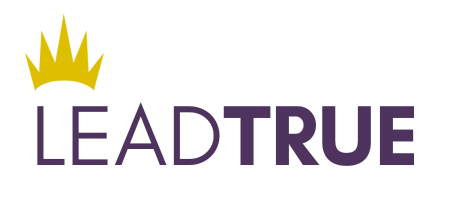Pillar 2: The Courage to Say What Needs to Be Said
4 Pillars of Courageous Leadership
By Amy Riley
When it’s time to deliver a tough message, do you can feel like you’ve got to have a complex set of interpersonal skills mastered? If so, you’re not alone. Many leaders I’ve worked with feel intimidated. 65% of managers frequently avoid challenging situations, according to Gallup (Amy Adkins, Gallup Workplace Publication, April 2, 2015).
Yet, I’d assert behaviors are secondary to your outlook, your beliefs about the persons involved. There’s a well-known quote from Peter Drucker, “Culture eats strategy for breakfast.” You know this one? I don’t think this could be more true, and I believe similarly that “Belief eats behavior for breakfast.” Having the appropriate beliefs, or outlook, is way more important than perfectly executing the seemingly appropriate behaviors.
If you want to help a person improve, you want to believe the person is capable, believe the person is responsible for his/her own choices and believe the person has his/her own strengths and skills. At least to some degree.
Why do you need to believe these assumptions? So you can be a courageous leader who trusts the capabilities of those around you and coaches whenever possible. Coaches empower, encourage critical thinking and thus, enable team members to find their own best ideas to improve and achieve the desired results.
This pillar – the courage to say what needs to be said – is also about determining what to say so the recipient can hear the message and take it in. There are 2 important intentions here. First, it’s about taking the time to get to know a person so you can speak to what’s most important to him or her. Second, and here’s where courage comes in, it’s about knowing what to edit out of your message because it’s more about you, your knowledge and/or your ego then it is about growing the person and improving his/her performance.
Here are a couple examples.
You may know exactly what you’d do if you were in the person’s shoes. Yet, if it’s more important for the person to own the outcome and develop in this area, then you might want to discuss the desired outcome only. Let the other person determine how to achieve the outcome.
You may be able to clearly point out a handful of things a person did wrong. Yet, if you want this person’s confidence to grow, it may be more positively impactful to point out a couple of key strengths and how they can use them to address 1 of the things that didn’t work as well as it could have.
Be clear about your intention and how to empower, grow and motivate others to take action.
You also want to understand when you might be tempted to share an assumption or interpretation of behavior that may or may not be accurate.
You may believe someone was distracted and checked out during a meeting, when the person was instead working through scenarios in her head to address the situation as she stared out the window. You may assume that a leader believes the team off-site isn’t worth his time and attention. When, instead, he was being pinged by his boss to address critical customer issues.
You want to ask questions about behaviors you could misinterpret before you assume intent or that you have the accurate interpretation. So then you know what does and does not need to be said. You can’t influence a person’s behavior until you understand the thoughts and intentions driving that person’s behavior.
Share with us below:
What courageous action will you take today?
Make the bold declaration you’ve been putting off making?
Set your ego aside? Shift your outlook about a team member?
Intrigued by the 4 Pillars of Courageous Leadership? Explore them all:
Amy L Riley is an international speaker, consultant, coach and author. She has over 2 decades of experience developing leaders at all levels. In her second book - The Courage of a Leader: How to Inspire, Engage and Get Extraordinary Results - she breaks down the 4 pillars of courageous leadership.



